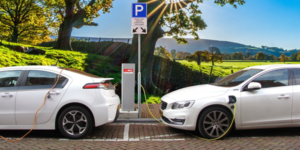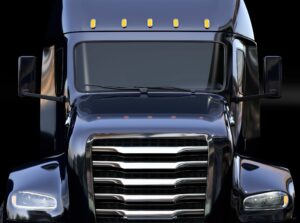 For startup companies lacking the cash flow or liquid assets to obtain a traditional bank loan, venture debt could be the answer to help elevate them to the next level.
For startup companies lacking the cash flow or liquid assets to obtain a traditional bank loan, venture debt could be the answer to help elevate them to the next level.
Startups often lack many of the characteristics that would give traditional lenders comfort that a regular commercial loan would be a good deal for them. Venture debt can be an alternative to help bridge the gap to a company’s next valuation.
Read More.
 On November 10th, two Babst Calland attorneys, Julie Domike and Gina Falaschi, will participate in an Environmental Law Institute (ELI) and Babst Calland co-sponsored webinar entitled “State Clean Transportation Initiatives: Stepping Towards Success for High EV Adoption.” They will be joined by Colorado State Senator Chris Hansen, Jim Chen, Vice President of Public Policy at Rivian, and Matt Nelson, Director of Government Affairs at Electrify America, in a discussion of 2020’s most important state-led clean transportation initiatives, their goals and impacts, as well as funding sources for such efforts. The panel will also explore the partnership that state and local governments can forge with industry to facilitate high electric vehicle penetration, charging and grid infrastructure, and direct sales to consumers.
On November 10th, two Babst Calland attorneys, Julie Domike and Gina Falaschi, will participate in an Environmental Law Institute (ELI) and Babst Calland co-sponsored webinar entitled “State Clean Transportation Initiatives: Stepping Towards Success for High EV Adoption.” They will be joined by Colorado State Senator Chris Hansen, Jim Chen, Vice President of Public Policy at Rivian, and Matt Nelson, Director of Government Affairs at Electrify America, in a discussion of 2020’s most important state-led clean transportation initiatives, their goals and impacts, as well as funding sources for such efforts. The panel will also explore the partnership that state and local governments can forge with industry to facilitate high electric vehicle penetration, charging and grid infrastructure, and direct sales to consumers.
The event is open to the public (there is a $50 fee for those who are not members of ELI; Press/Full-Time Students, $0); registration is required by November 6 through the ELI Website.
 Significant funding will soon be available in California to support the expansion of zero-emission trucks in the heaviest weight class that has previously relied on diesel engine technologies. On August 18, 2020, California will start to parcel out $27 million in funding from the Volkswagen (VW) Environmental Mitigation Trust program to replace higher polluting trucks with zero-emission vehicles.
Significant funding will soon be available in California to support the expansion of zero-emission trucks in the heaviest weight class that has previously relied on diesel engine technologies. On August 18, 2020, California will start to parcel out $27 million in funding from the Volkswagen (VW) Environmental Mitigation Trust program to replace higher polluting trucks with zero-emission vehicles.
The VW Environmental Mitigation Trust provides about $423 million for California to mitigate the excess nitrogen oxide emissions caused by VW’s use of emissions defeat devices in certain of its diesel passenger vehicles. The trust is a component of partial settlements with VW and provides earmarked funding opportunities for actions like “scrap and replace” projects for the heavy-duty sector, including on-road freight trucks, transit and shuttle buses, school buses, forklifts and port cargo handling equipment, commercial marine vessels, and freight switcher locomotives. As required by the settlement, California developed a Beneficiary Mitigation Plan that was approved by the trustee in June 2018.
As part of the Beneficiary Mitigation Plan, $90 million was made available for the Zero-Emission Class 8 Freight and Port Drayage Trucks category to replace freight trucks (including drayage), waste haulers, dump trucks, and concrete mixers. The first $27 million installment of the total $90 million has been approved and applications for funding will be available on August 18. Eligible applicants will be awarded funding on a first-come, first-served basis.
To qualify, existing vehicles must be powered by engine built in model years 1992 to 2012, in compliance with all applicable regulations, and scrapped in exchange for a zero-emission replacement vehicle certified or approved by the California Air Resources Board or eligible under the Hybrid and Zero-Emission Truck and Bus Voucher Incentive Project. Applicants must be able prove ownership for at least one year, and the old and new vehicles must operate within California at least 75% of the time. Applicants granted an award must submit annual usage reports for the term of the contract.
Maximum funding will not exceed $200,000 per eligible replacement vehicle and funding is available for both public and private entities. Non-government entities, however, may only receive an incentive up to 75% of the cost of the vehicle, while government-owned vehicles are eligible for 100% of the cost up to the $200,000 cap.
VW Environmental Mitigation Trust funding for this and other projects, in California and in many other states, promotes the development of and investment in cleaner transportation technologies and the infrastructure that supports them. While the total $90 million is simply a drop in the bucket when it comes to meeting California’s goal of phasing out diesel trucks completely by 2045 under its newly passed Advanced Clean Trucks regulation, it is a start.
 For startup companies lacking the cash flow or liquid assets to obtain a traditional bank loan, venture debt could be the answer to help elevate them to the next level.
For startup companies lacking the cash flow or liquid assets to obtain a traditional bank loan, venture debt could be the answer to help elevate them to the next level. On November 10th, two Babst Calland attorneys,
On November 10th, two Babst Calland attorneys,  Significant funding will soon be available in California to support the expansion of zero-emission trucks in the heaviest weight class that has previously relied on diesel engine technologies. On August 18, 2020, California will start to parcel out $27 million in funding from the Volkswagen (VW) Environmental Mitigation Trust program to replace higher polluting trucks with zero-emission vehicles.
Significant funding will soon be available in California to support the expansion of zero-emission trucks in the heaviest weight class that has previously relied on diesel engine technologies. On August 18, 2020, California will start to parcel out $27 million in funding from the Volkswagen (VW) Environmental Mitigation Trust program to replace higher polluting trucks with zero-emission vehicles.